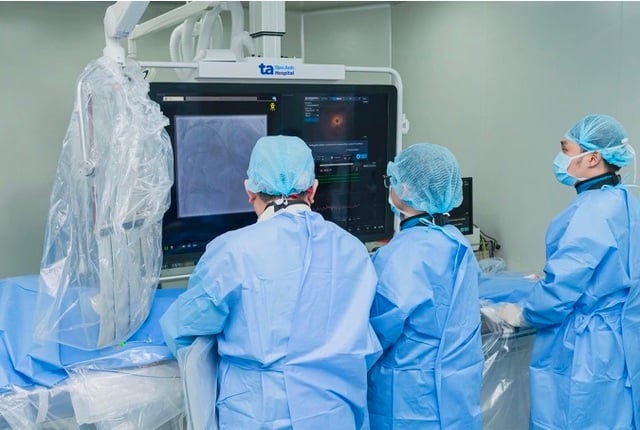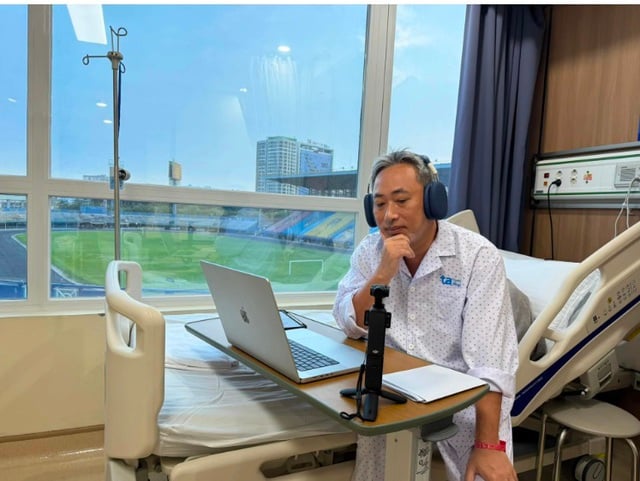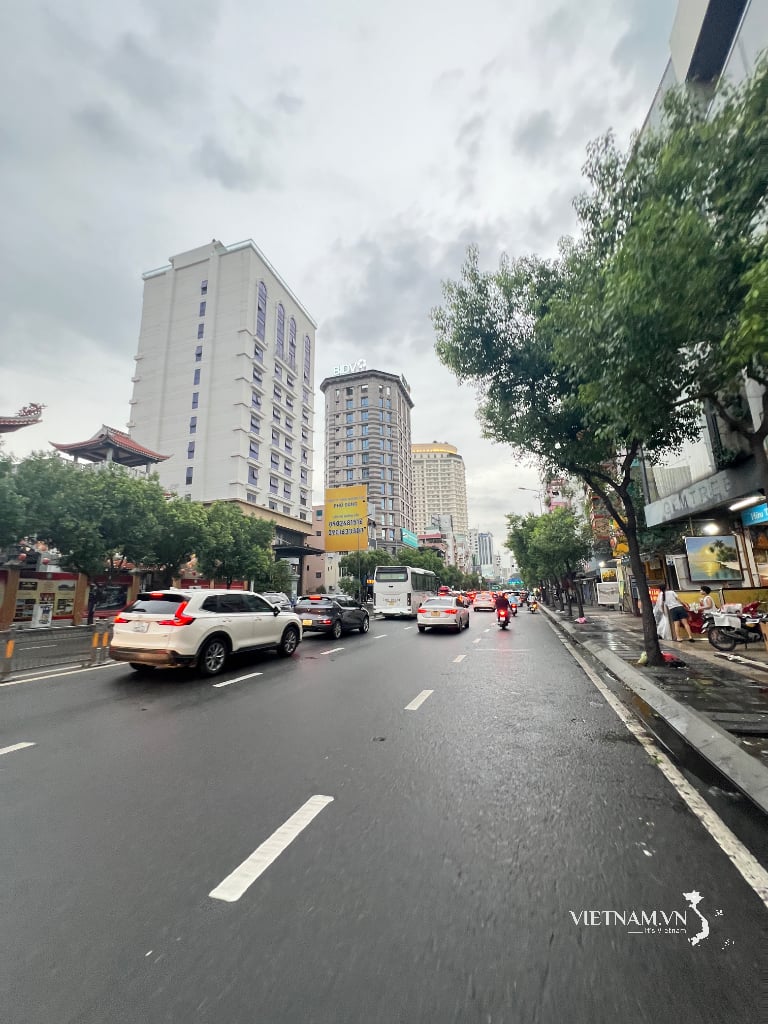Previously, director Nguyen Quang Dung experienced dull chest pain and a burning sensation in his chest, but he dismissed it as stress and excessive coffee consumption. Only when the pain recurred intensely the following morning did he decide to seek medical attention. Urgent tests confirmed he had suffered an acute myocardial infarction (heart attack) requiring immediate intervention.
On April 24th, Dr. Nguyen Van Duong, a specialist in Cardiovascular Intervention, Tam Anh General Hospital, Ho Chi Minh City, stated that the patient exhibited symptoms of acute coronary syndrome and underwent an electrocardiogram (ECG) and cardiac enzyme tests. The results confirmed an acute myocardial infarction. Immediately, doctors activated the hospital-wide myocardial infarction emergency protocol. The patient was transferred to the cardiac catheterization lab. Coronary angiography revealed complete blockage of one major artery supplying the heart, with diffuse narrowing in the other two branches.
Doctors are performing an intervention to place a stent to restore blood flow in the patient's heart.
PHOTO. TA
During the procedure, the team used the latest generation of drug-eluting stents, coated with a special medication to prevent the growth of endothelial cells. This medication is gradually released into the blood vessel after stent placement, keeping the vessel lumen smooth and reducing the rate of restenosis after the intervention.
The doctor performed the procedure via the radial artery in the wrist and used local anesthesia, so Mr. Dung was fully conscious throughout the procedure. A few hours after the intervention, he was able to walk gently, experienced less chest pain, and was healthy enough to be discharged from the hospital after two days.
According to Professor, Doctor Vo Thanh Nhan, Director of the Interventional Cardiology Center at Tam Anh General Hospital in Ho Chi Minh City, patients who are admitted at the right time and receive timely emergency care during the critical window can avoid serious complications such as heart failure or arrhythmias.
Director Nguyen Quang Dung after receiving emergency treatment for a heart attack a day earlier.
PHOTO. TA
Myocardial infarction in young people is no longer uncommon.
Despite having regular health checkups and exercising , due to his busy work schedule, years of smoking, and untreated dyslipidemia, Mr. Dung still falls into the high-risk group.
According to Professor Vo Thanh Nhan, most young people under 50 believe that cardiovascular disease only affects older people, so they often become complacent and hesitate to seek medical attention even when symptoms appear, not thinking they might be ill. Meanwhile, many young people have unhealthy eating habits, are overweight or obese, experience work pressure leading to stress, are sedentary, or stay up late… These are common reasons why myocardial infarction (heart attack) rates are increasing among young people, estimated to account for 6-10% of all heart attack cases.
After his near-death experience, director Nguyen Quang Dung decided to quit smoking, adjust his lifestyle, and plan to return to regular exercise.
Nguyen Quang Dung, born in 1978, is not only the director of many hit films such as "The Kiss of Death," "Blood Moon Party," "Glorious Years," "You and Trinh, " etc., but also a popular "food vlogger" with a series of Saigon food review videos on YouTube.
Source: https://thanhnien.vn/dao-dien-nguyen-quang-dung-thoat-nguy-kich-do-nhoi-mau-co-tim-18525042408204503.htm








![[Photo] Prime Minister Pham Minh Chinh attends the Conference on the Implementation of Tasks for 2026 of the Industry and Trade Sector](/_next/image?url=https%3A%2F%2Fvphoto.vietnam.vn%2Fthumb%2F1200x675%2Fvietnam%2Fresource%2FIMAGE%2F2025%2F12%2F19%2F1766159500458_ndo_br_shared31-jpg.webp&w=3840&q=75)
































































































Comment (0)